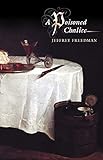A Poisoned Chalice / Jeffrey Freedman.
Material type: TextPublisher: Princeton, NJ : Princeton University Press, [2020]Copyright date: ©2002Description: 1 online resource (256 p.) : 17 halftonesContent type:
TextPublisher: Princeton, NJ : Princeton University Press, [2020]Copyright date: ©2002Description: 1 online resource (256 p.) : 17 halftonesContent type: - 9780691221557
- HISTORY / Modern / 18th Century
- American Revolution
- Augsburg
- Baptism
- Blood libel
- Chemistry
- Critique of Pure Reason (Kant)
- Deism
- Diderot, Denis
- Eberhard, Johann
- Eternal damnation
- Evil: diabolic
- Faust (Müller)
- French Revolution
- Geneva
- Gessner, Johannes
- Göttingen
- Halle
- Hitler, Adolf
- Holocaust
- Iconoclasm
- Koller, Johann Jakob
- Lavoisier, Antoine
- Leipzig
- Lucerne
- Marx, Karl
- Medicine
- Möser, Justus
- Neology
- Nihilism
- Original sin
- Physics
- Predestination
- Public sphere
- Public use of reason
- Reading cabinets
- Reading societies
- Riesbach
- Semler, Johann
- Small Council
- Statistics
- Stuttgart
- Theodicy
- Transubstantiation
- Ulrich's wife
- Vienna
- Voltaire
- Weber, Matthias
- Wiedikon
- Wirz's sister
- Zwingli, Huldrych
- online - DeGruyter
| Item type | Current library | Call number | URL | Status | Notes | Barcode | |
|---|---|---|---|---|---|---|---|
 eBook
eBook
|
Biblioteca "Angelicum" Pont. Univ. S.Tommaso d'Aquino Nuvola online | online - DeGruyter (Browse shelf(Opens below)) | Online access | Not for loan (Accesso limitato) | Accesso per gli utenti autorizzati / Access for authorized users | (dgr)9780691221557 |
Browsing Biblioteca "Angelicum" Pont. Univ. S.Tommaso d'Aquino shelves, Shelving location: Nuvola online Close shelf browser (Hides shelf browser)

|

|

|

|

|

|

|
||
| online - DeGruyter How Russia Shaped the Modern World : From Art to Anti-Semitism, Ballet to Bolshevism / | online - DeGruyter Making Christians : Clement of Alexandria and the Rhetoric of Legitimacy / | online - DeGruyter The Taylorized Beauty of the Mechanical : Scientific Management and the Rise of Modernist Architecture / | online - DeGruyter A Poisoned Chalice / | online - DeGruyter Kurozumikyo and the New Religions of Japan / | online - DeGruyter Bismarck and the Development of Germany : The Period of Unification, 1815-1871 / | online - DeGruyter Muslims through Discourse : Religion and Ritual in Gayo Society / |
Frontmatter -- Contents -- List of Illustrations -- Preface -- Introduction -- CHAPTER ONE. Murder in the Cathedral -- CHAPTER TWO. Proof and Persuasion -- CHAPTER THREE. "Not Wirz, Not the Gravedigger" -- CHAPTER FOUR. The Enlightenment in German-Speaking Europe -- CHAPTER FIVE. "And God Fell Silent": The Enlightenment on Trial (I) -- CHAPTER SIX. Radical Evil: The Enlightenment on Trial (II) -- CHAPTER SEVEN. The Sword of Justice -- CHAPTER EIGHT. The Search for Truth -- Notes -- Bibliography -- Index
restricted access online access with authorization star
http://purl.org/coar/access_right/c_16ec
A Poisoned Chalice tells the story of a long-forgotten criminal case: the poisoning of the communion wine in Zurich's main cathedral in 1776. The story is riveting and mysterious, full of bizarre twists and colorful characters--an anti-clerical gravedigger, a hard-drinking drifter, a defrocked minister--who come to life in a series of dramatic criminal trials. But it is also far more than just a good story. In the wider world of German-speaking Europe, writes Jeffrey Freedman, the affair became a cause célèbre, the object of a lively public debate that focused on an issue much on the minds of intellectuals in the age of Enlightenment: the problem of evil. Contemporaries were unable to ascribe any rational motive to an attempt to poison hundreds of worshippers. Such a crime pointed beyond reason to moral depravity so radical it seemed diabolic. By following contemporaries as they struggled to comprehend an act of inscrutable evil, this book brings to life a key episode in the history of the German Enlightenment--an episode in which the Enlightenment was forced to interrogate the very limits of reason itself. Twentieth-century horrors have familiarized us with the type of evil that so shocked the men and women of the eighteenth century. Does this familiarity give us any special insight into the affair of the poisoned chalice? In its final chapter, the book takes up this question, reflecting on the nature of historical knowledge through an imaginary dialogue with Enlightenment-era interlocutors. But it does not reach any definitive conclusion about what happened in the Zurich cathedral in 1776. To search for the truth about such a mystery is merely to extend a dialogue begun in the eighteenth century, and that dialogue is as open-ended as the process of Enlightenment itself.
Mode of access: Internet via World Wide Web.
In English.
Description based on online resource; title from PDF title page (publisher's Web site, viewed 02. Feb 2021)


